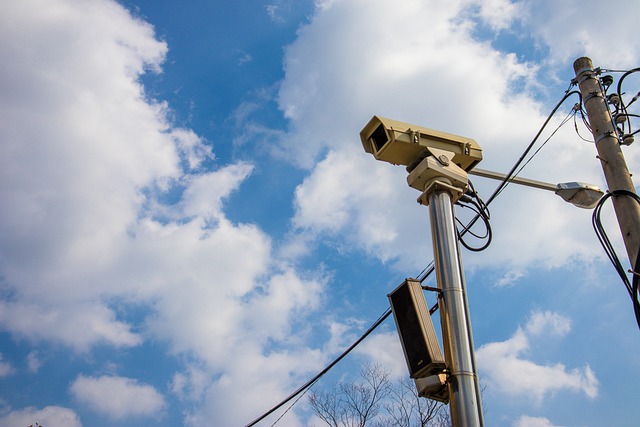
Here in the UK, the weather can change at any given time, so it's important that your home security system is designed to withstand the pressure of harsh and wet weather conditions. CCTV cameras that are positioned around the exterior of your home are generally exposed to the elements. We are often asked whether rain affects CCTV cameras and the footage they record. If this is a question you'd like to find the answer to, just keep reading...
Will CCTV cameras be damaged by the rain?
When it comes to electricals and water, the two don't mix very well. In fact, it's best to keep electricals as far away from water as possible!
Prolonged exposure to rainwater could cause your CCTV system to malfunction or stop working altogether. If water encroaches into the CCTV camera itself, it can cause damage that's very hard to repair. Once water has seeped into your CCTV camera, it's not very easy to get it back out, so prevention of water ingress is key.
When water gets inside the lens of your CCTV camera, it distorts the image and makes it very difficult to see what your camera is capturing. This can be a real problem if a criminal decides to target your property on a rainy day.
What can you do to prevent water damage?
There are a few different things you can do to make sure that rain doesn't affect your CCTV cameras. If you're planning on installing a CCTV system in the near future, we recommend talking to your security company about weather-proofing your system beforehand. Here are a few steps you can take to keep your CCTV system working in all weathers.
1. Install your CCTV cameras in sheltered areas
Ensuring that each of your CCTV cameras has some protection from the elements is a great way to prevent water damage. Something as simple as moving the cameras into a slight inlet can prevent complications later down the line. Again, we recommend you talk to your security company about the positioning of your cameras because it's vital you find a balance between rain cover and coverage of vulnerable access points.
2. Install multiple CCTV cameras
If you live in an area that's known to get a lot of rain, it might be worth installing multiple cameras around your property. This gives you an added level of protection if one of your cameras is damaged or distorted by the rain.
3. Check your CCTV cameras regularly
While taking precautions should help to prevent your CCTV cameras from being water damaged, you can never be 100% sure. The best way to maintain a functioning CCTV system is to check it regularly. If you notice any signs of water ingress, you should contact your security system provider and seek advice.
CCTV Systems from IDS Security
While water can cause problems for your CCTV system, that shouldn't deter you from installing one! CCTV systems that you buy online and install yourself are generally more prone to water damage because they're made of cheaper materials and arent' always installed correctly. If you want to reduce the chances of your CCTV system being damaged by water, then we recommend you get in touch with our team here at IDS. We have decades of experience installing CCTV systems and we use top of the line cameras that are good at coping with harsh weather conditions.
It's very unlikely that the rain will cause enough damage to leave your home or business premises vulnerable, but if the worst should happen, the IDS Security team will be on hand to help you. All of our security systems are tailor-made to suit the requirements of your property. This means you get ample coverage of all the vulnerable areas and we can also take into account shelter for your cameras if water ingress is a potential problem.
We hope that you'll choose IDS security for your CCTV system and other security system needs. We provide a personal service that ensures you receive the highest level of protection and reassurance. If you have any questions, you can get in touch with our team by filling in the enquiry form on our contact page.
Our CCTV Systems > Contact IDS Security >